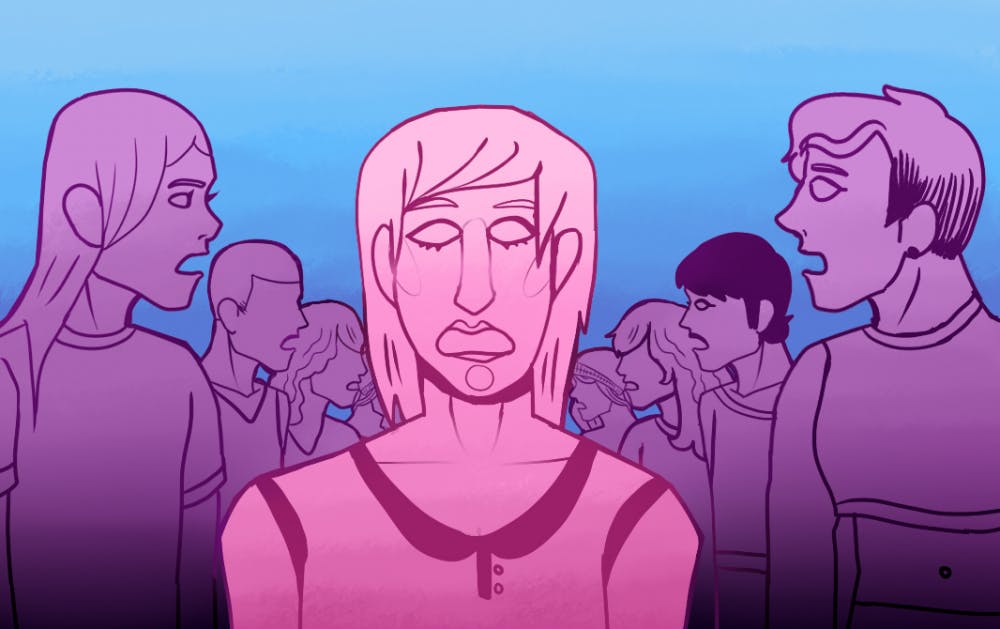Female genital cutting, also known as FGC, is a worldwide practice that transcends different cultures and religions and must be approached with cultural and ethical sensitivity. Non-consensual FGC is a human rights violation. In the U.S. specifically, an estimated 500,000 girls are either at risk for or have had some form of genital cutting.
Although some women choose to alter their genitals for religious, cultural or aesthetic purposes, there are many women who have been forced to undergo this operation against their will. This describes a clear distinction between consensual and non-consensual genital alteration.
As members of a globally-inclusive university, ASU students should work to promote the rights of all individuals and ensure the safety of millions of girls across the globe.
“The easiest way ASU students can get involved in fighting [unwanted FGC] is to help raise awareness about the fact that this human rights abuse happens right here in the U.S,” said Amanda Parker, senior director of the AHA Foundation. “With more than half a million girls at risk, this is happening to our classmates, friends, coworkers and neighbors. Sharing news articles about FGC via social media and discussing the issue with friends is an important way to open [people’s] eyes that this impacts girls right here and it needs to stop.”
Many people are under the impression that forced female genital cutting only exists outside Western countries. Although this practice is illegal in several regions, millions of living girls worldwide have been victims of unwanted cutting, especially in areas such as the Middle East and Africa. But female genital cutting is happening in our own backyard.
According to a study from the Weill Cornell Center for Human Rights, in Arizona, over 2,700 women were at risk of FGC, over 2,300 of which came from the Phoenix-Mesa area. Luckily, there are ways for ASU students to become more educated on this issue and gain the power and resources to invoke change.
Volunteer organizations are always looking for students to get involved. College students make great volunteers because they have both the energy and the drive to make a serious impact, especially in areas that are difficult to face.
The Refugee Women’s Health Clinic, a Maricopa health care center that helps support female refugees, is always collecting donations for refugee women. They are also looking for qualified students to volunteer and intern with the clinic.
“Simply changing the laws and making it illegal is not effective," said Yasmin Bootwala, a community urologist who is working with Dr. Crista Johnson-Agbakwu, a physical and assistant professor at ASU who runs a research team on this issue. "The change comes from building relationships and engaging communities.”
Many women experience cutting during infancy or early childhood, which gives the girls little to no choice about what is being done to their bodies.
FGC has no proven health benefits and may cause severe pain and medical problems for the victims. Some of the issues that female circumcision may cause include bleeding, infections, cysts, trouble urinating and increased difficulty and pain during childbirth.
It is crucial that students become involved in grassroots efforts to raise awareness about this issue and encourage discourse, especially when in close proximity to resource centers that are involved in helping women who experience this practice.
At the Refugee Women's Health Clinic, numerous refugee women come in for health services and treatment every year. Those who work at this clinic have become very familiar with women who have been impacted by genital cutting and work to help minimize the effects of this physical and psychological pain.
Johnson-Agbakwu founded this clinic.
Because Arizona is one of the top ten states for refugees, health clinics and volunteers from all over the Valley have seen first-hand how forced genital cutting impacts the lives of women and young girls.
ASU students must work with local refugee communities in order to help end FGC among unwilling women and girls.
“These aren’t people who want to hurt their children. Female genital cutting has happened for generations and spans across cultures and various regions across the world," Bootwala said. "You have to approach female genital cutting in a culturally sensitive manner to better understand people, to engage communities through dialogue and research, and ultimately be part of meaningful change.”
Reach the columnist at amsnyde6@asu.edu or follow @AnnieSnyder718 on Twitter.
Editor’s note: The opinions presented in this column are the author’s and do not imply any endorsement from The State Press or its editors.
Want to join the conversation? Send an email to opiniondesk.statepress@gmail.com. Keep letters under 500 words and be sure to include your university affiliation. Anonymity will not be granted.
Like The State Press on Facebook and follow @statepress on Twitter.




